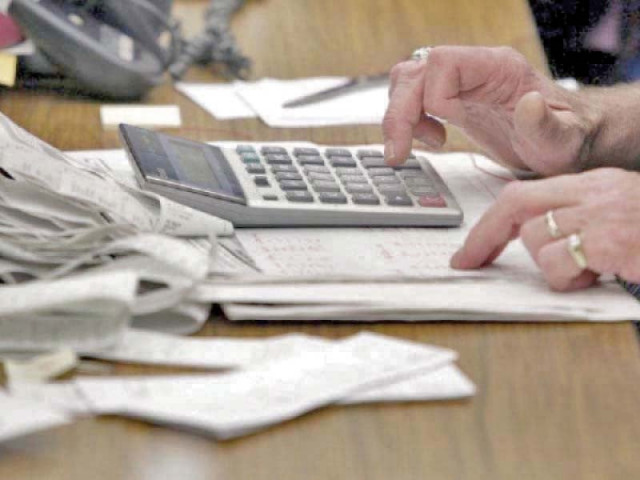Kibor hits all-time high at 16.81%
Six-month Kibor increased by 91 basis points from 15.9% on Friday

The commercial banks’ benchmark lending rate, Karachi Interbank Offered Rate (Kibor), hit an all-time high of 16.81% on Monday, jacking up the government’s interest payments on debt by Rs150-200 billion per annum.
This development is all set to raise the cost of borrowing significantly for almost everyone, including the government and the private sector.
The six-month Kibor increased by 91-basis points in a single day to reach 16.81% on Monday, as compared to 15.9% on Friday. This is the benchmark lending rate at which banks extend financing to one another. Banks also use it as a benchmark rate for lending funds to businesses in the private sector.
Arif Habib Limited (AHL) Head of Research, Tahir Abbas noted that “Kibor was introduced in Pakistan in 2003, and this marks the first time that the rate hit as high as 16.81%.”
The rate increased after the State Bank of Pakistan (SBP) unexpectedly hiked its key policy rate by 100-basis points to over a two-decade high of 16% on Friday.
The increase in the key policy rate also jacked up the yield (rate of return) on government debt securities, like T-bills and Pakistan Investment Bonds (PIBs) by up to 100-basis points in the secondary debt market during the day.
JS Global Research said in a commentary that “all eyes are on PIBs and T-bill auctions scheduled for tomorrow (Tuesday) and the day after, respectively.”
Abbas explained that, “The cut-off yield (the rate at which commercial banks extend lending to the government) on T-bills and PIBs are set to go up by around 100-basis points in the auction, as the primary debt market will also adjust the hike in the key policy rate accordingly.”
The government does domestic commercial borrowing by selling its debt instruments (T-bills/PIBs) to commercial banks from time-to-time.
“Similarly, the hike in Kibor to a historical high has also taken debt servicing up significantly. The thumb rule suggests that a 100-basis point hike in the rate increases interest payments on the government’s debt portfolio by Rs150-200 billion (in Pakistan’s case),” he added.
“The government itself has become one of the biggest victims of the rate hike, as this has further tightened its fiscal space,” underlined Abbas.
“The rate hike will further decelerate economic activities, already under pressure due to the government’s administrative measures to cool down the then overheated economy and compensate for flood-related heavy losses,” he stated.
“To recall, the sale of petroleum products, electricity, cars, cement, steel, textiles and fertilisers all have been on a decline due to the restrictions imposed on imports,” elaborated Abbas.
According to data from the SBP, “The government has gradually increased its borrowing by a huge 32.6% in a year to Rs18.3 trillion by the end of October 2022, as compared to the figure of Rs13.8 trillion at the end of the same month of last year.”
The yield has increased sharply by 104-basis points in a day to 16.83% on six-month T-bills in the secondary debt market on Monday. It rose by 106-basis points to stand at 16.86% on 12-month T-bills.
Likewise, the yield on three-year, five-year and 10-year PIBs increased by 55-basis points, 45-basis points and 56-basis points respectively, to 14.77%, 13.74% and 13.49% in the secondary market.
Historical data suggests that the yield on bonds in the secondary markets and in auction in the primary markets follow each other.
Abbas underscored that “the latest hike in the key policy rate has again generated a debate in the market about whether the rate has reached its peak at 16% or if it will increase further in the near future.”
The central bank has apparently increased its key policy rate under pressure from the International Monetary Fund (IMF), which has kept delaying the ninth review of the economy, under its $6.5 billion loan programme.
Meanwhile, the domestic currency inched up by one paisa to close at Rs223.95 against the US dollar in the interbank market on Monday.
The currency stabilised in the wake of the SBP Governor, Jameel Ahmed’s statement that “they have arranged additional foreign exchange reserves to repay $1 billion, three days ahead (on December 2) of the maturity of a 5-year Sukuk on December 5, 2022.”
Published in The Express Tribune, November 29th, 2022.
Like Business on Facebook, follow @TribuneBiz on Twitter to stay informed and join in the conversation.



















COMMENTS
Comments are moderated and generally will be posted if they are on-topic and not abusive.
For more information, please see our Comments FAQ